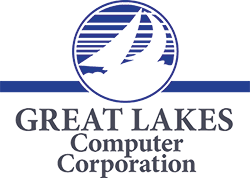 As cloud computing grows in popularity, many managers who are resistant to change are trotting out tired, old excuses for why they advocate sticking with the old ways of doing business. Adopting a cloud-based platform results in a period of change for an organization, as is true when any transition is undertaken. However, the numerous benefits that accompany the successful migration to the cloud add enough value to your organization to more than justify the effort. The following are some of the more enduring complaints about cloud computing and why you shouldn’t let them stand in your way.
As cloud computing grows in popularity, many managers who are resistant to change are trotting out tired, old excuses for why they advocate sticking with the old ways of doing business. Adopting a cloud-based platform results in a period of change for an organization, as is true when any transition is undertaken. However, the numerous benefits that accompany the successful migration to the cloud add enough value to your organization to more than justify the effort. The following are some of the more enduring complaints about cloud computing and why you shouldn’t let them stand in your way.
I’ve already invested in server hardware, and the cloud will add more costs on top of that
Many companies invest a lot of money into hardware costs upfront, and then amortize those costs over an extended period of time. However, hardware and servers will always need to be updated and maintained, and more physical space will be necessary as time goes on. Complete cloud services feature a predictable pricing structure that can easily be budgeted for with no fears of expensive and unexpected upgrades.
It’s less secure than keeping our data in-house
It is a myth that you can store your data more securely using in-house servers than by taking advantage of the cloud. It sounds counterintuitive, but relying on an outside company with economies-of-scale in security measures is actually safer than relying solely on your own protections.Cloud computing security has increased over the years, and documents are typically encrypted with bank-level security. Reliable cloud services companies depend on sophisticated security measures that are generally prohibitively expensive for smaller organizations. They know that unless they earn your trust with the handling of your critical data, they’ll be out of business in a hurry.
The cloud can’t be used for our critical applications
It’s easy for some to accept the cloud as an email platform or a system for internal file sharing, but they may still believe that crucial business processes can only be handled by dedicated software. In actuality, a complete cloud service is built to work with all functions of your business, including customer management, accounting, and operations.
Migrating to a new platform will require employees to learn a complicated new system
Yes, moving your IT system to the cloud will involve some training for your employees on the front end. You’re going to have to upgrade your systems at some point anyway, and once your team sees how intuitive and user-friendly a cloud-based solution can be, they’ll be grateful for the change.
The cloud will make my IT department redundant
Switching to a complete cloud platform will free your IT managers from the relentless tasks of server and firmware upgrades and allow them to help your business grow and evolve. Most IT departments now serve so many end-users operating on varied systems that they don’t even have enough time to respond to all calls for help.
Don’t let the myths propagated by fearful executives prohibit you from discovering the many benefits of a complete cloud solution. See how you can streamline your IT environment, boost productivity, and save money all by taking advantage of the unique features of a complete cloud platform.




